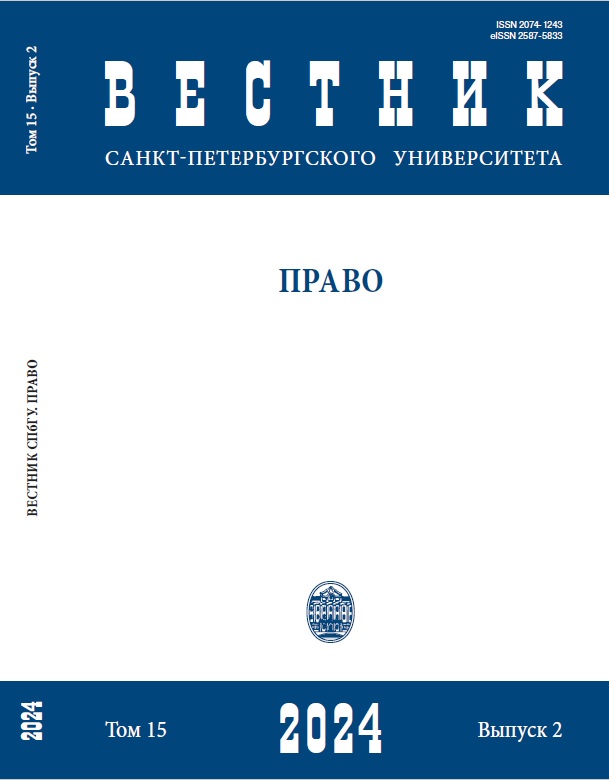Corrective action for prisoners of war: International legal, penal and other regulation
DOI:
https://doi.org/10.21638/spbu14.2024.207Abstract
The article substantiates the relevance of the study of the peculiarities of the application of means of correction in relation to convicted prisoners of war. The article answers the question of in what places of forced confinement it is allowed to isolate the above-mentioned persons —
in correctional institutions of the Russian penal and correctional system with separate detention from prisoners sentenced to imprisonment or in other places of forced confinement? The provisions of the Geneva Convention of 1949 “On the Treatment of Prisoners of War” are analysed in order to identify the specifics of treatment of this category of convicts. It is proposed to supplement it with a provision according to which there should be a prohibition to allow persons who suffered (or their relatives suffered) from the results of military actions
to work with prisoners of war. The paper substantiates the necessity of implementing the principle of differentiation and individualisation in relation to prisoners of war convicted of various types of crimes, who have relapsed into crime (such cases are not uncommon, especially among mercenary combatants) or who have other socio-legal or personal characteristics. It is concluded that it is advisable, taking into account the provisions of international settlement
documents at the national level in penal and other legislation, such issues as determining the places of detention of convicted prisoners of war, the scope of legal restrictions in relation to them, ensuring external and internal isolation, the content of educational work with them, including the use of measures incentives and penalties, their employment, providing social influence, organizing medical care.
Keywords:
combat situation, martial law, corrective and preventive action, disarmed combatant, war crimes, human dignity
Downloads
References
Downloads
Published
How to Cite
Issue
Section
License
Articles of "Vestnik of Saint Petersburg University. Law" are open access distributed under the terms of the License Agreement with Saint Petersburg State University, which permits to the authors unrestricted distribution and self-archiving free of charge.






